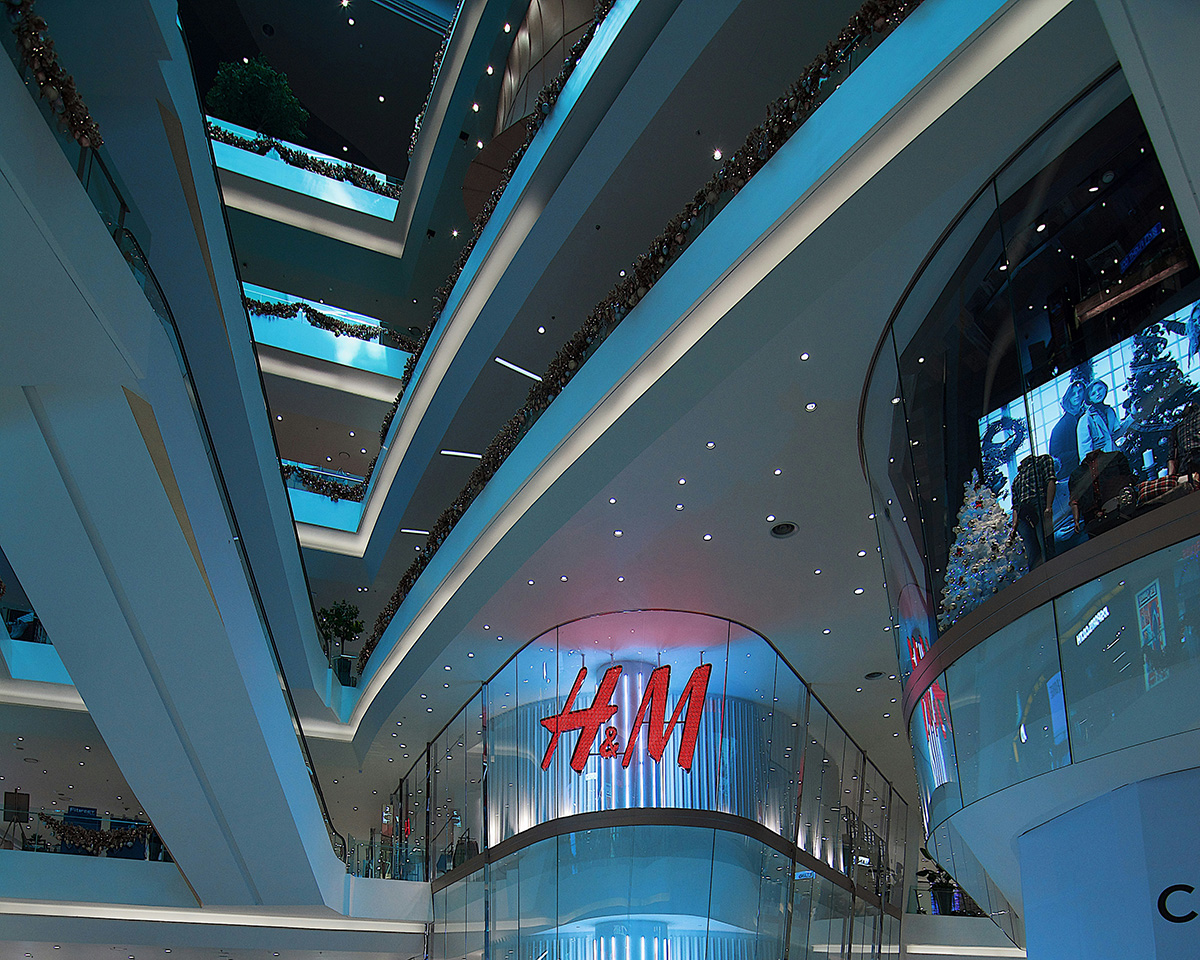FROM OUR NOVEMBER ISSUE: FASHION FUTURES-2024 THE YEAR OF UNIFIED COMMERCE

The entire MR team proudly presents our November 2024 issue. If you haven’t received a hard copy, please page through our digital version, and we’ll continue to post individual stories here on MR-mag.com. If you haven’t been getting MR in print, be sure that you are on our mailing list for future issues by completing this form.
The adoption of technology has made customer journeys increasingly complex and dynamic, explains Rich Lim, Chief Executive at Retail Economics, a London-based independent economics consultancy. “Consumers now expect brands to satisfy their needs regardless of where, when or how they shop,” he says. “2024 is the year of unified commerce where social, mobile, brick & mortar, Artificial Intelligence (AI), and e-commerce merge to behave as one.
The interdependence between online and offline channels is a critical aspect of the US retail landscape. Forty percent of US online sales rely on physical touch points, with $200 billion to $300 billion of online sales dependent on brick-and-mortar.
Here are a few bits of phygical (physical + digital) kit helping retailers keep up with consumer demands to increase loyalty and drive revenue through unified commerce.
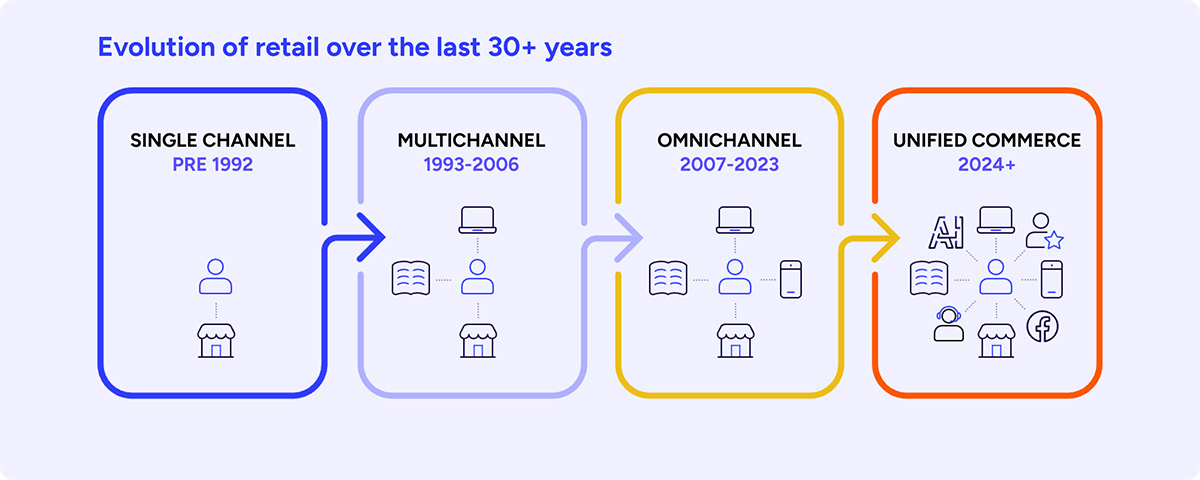
AI Powered Shopping Assistants
According to IBM, it took us 2,013 years to generate 90% of the world’s data. Since 2013, we have generated 90% of the world’s data every two years! AI is “the glue” to unified commerce, helping retailers and brands make sense of all of this data digital generates.


Customer Data, Product Data, Supply Chain Data
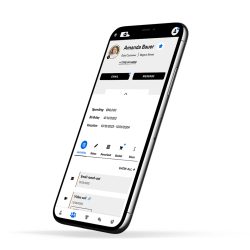
In a recent fireside dinner held in Munich with the Fashion Council of Germany, Amazon Fashion EU General Manager/Director of Apparel Florian Mair told the audience that Virtual Try-ons may be what they are hearing about, but it’s having your data in order that differentiates you from the competition. Getting the basics right at retail, he emphasized, is just as important as the next shiny new tech toy.
H&M’s Smart Fitting room Shop Floor Tablets with informative dashboards powered by Amazon QuickSight, a cloud-based business intelligence (BI) tool, helps retailers create visualizations, dashboards, and reports for real-time data insights. Data can be stored in Amazon Web Services (AWS) a cloud-based data platform, from existing legacy systems, to leverage other AI reporting tools.
Knowing who your customer is and what they want wherever they shop is crucial to maintaining customer loyalty. Acquiring a new customer can cost five times more than retaining an existing one. And loyal customers are five times more likely to repurchase, four times more likely to refer, and seven times more likely to try a new offering.
Clienteling applications such as Proximity inform store staff what’s in a customer’s online wish list, what they have already purchased, and what they are looking to buy, with added features of text and email outreach, appointment booking and mobile checkout — the new norm for digitally advanced retailers.
“Our focus at Proximity is on the powerful blend of human connection and technology. By integrating these, we empower brands to build lasting relationships that consistently increase customer lifetime value by 4-5 times compared to non-clienteled customers,” explains Proximity CEO Cathy McCabe.
“I can’t emphasize enough how Proximity and the Retail Super-App have revolutionized our store teams’ workflow and brought our staff closer to our customers than ever before,” says Camillia Spaczynska, Head of Retail Operations for Paul Smith. “Our teams have also been able to outreach to far more customers and manage relationships more consistently and appropriately. The level of insight makes our job easier and our customers engaged and happier.”
Paul Smith reports an 80% response rate to outreach messages sent by the store teams. Clienteling customers’ purchase frequency is 2-3x that of a standard customer, with their average transaction value doubled.
Digital leaders have outpaced “fast followers” and “latecomers” for several years. The message for this holiday season is clear: Unite or Die!
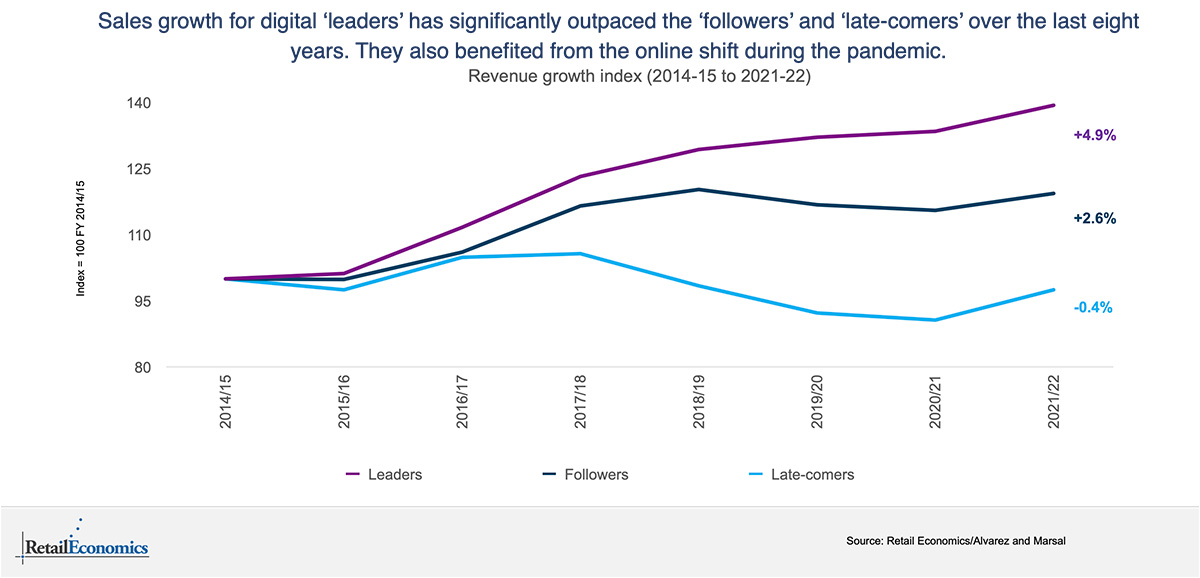
Virtual Try On, Smart Fitting Rooms, and Self Service
This year retail has moved from prototyping to rollout for interactive screens and tablets, Augmented Reality (AR), body scans, and computer vision in fitting rooms. Customers can easily search and request different sizes and colors of products online in real-time while in the fitting room to virtually try them on or have them brought to the fitting room for In Real Life (IRL) try-ons.
Smart Fitting Rooms are creating positive experiences, increasing consumer satisfaction, accelerating the buying journey, and increasing sales for Zara, Savage X Fenty, Nike, and H&M.
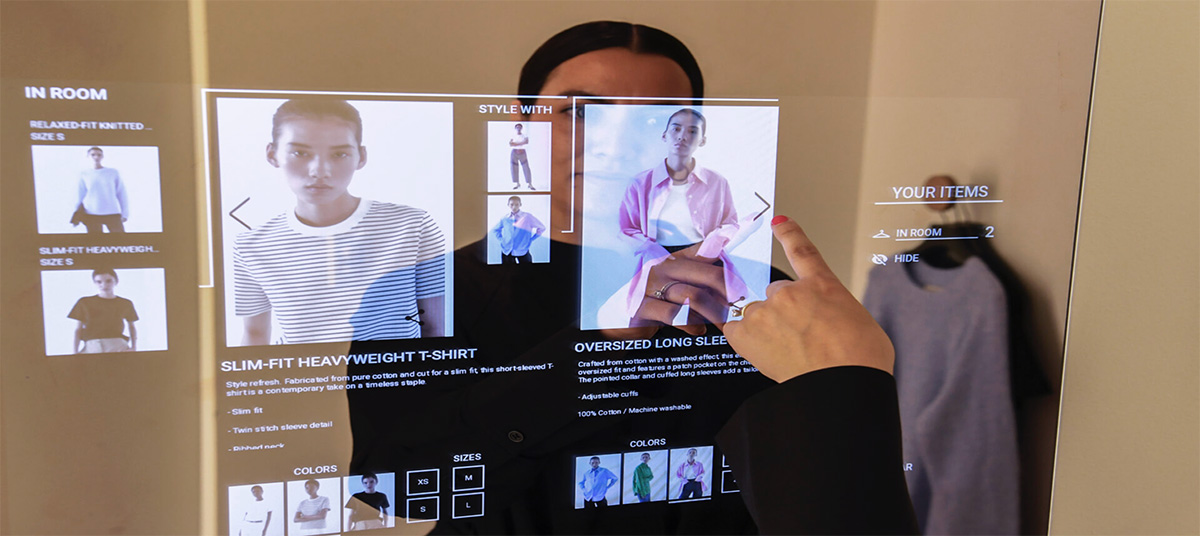
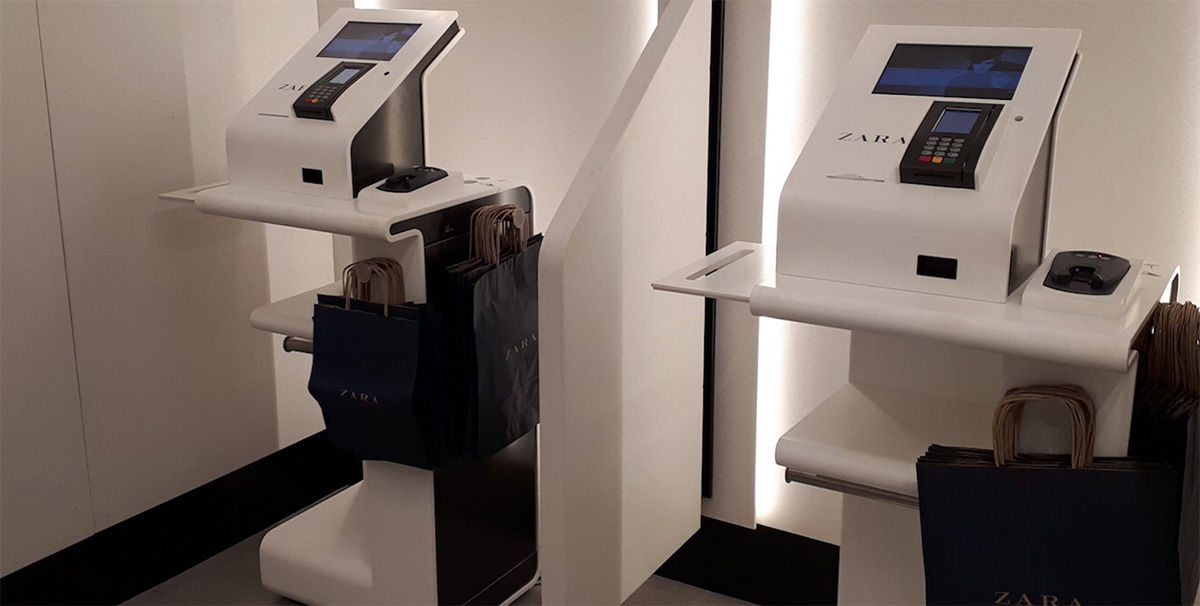

Many consumers are time-poor. Self check-out cash registers aren’t just for supermarkets anymore. The ability to read QR codes for in-store pick-up of online purchases (“click and collect”) speeds up collection.

Photos courtesy of Retail Economics and Proximity Insight. Lead photo by Psk Slayer.


